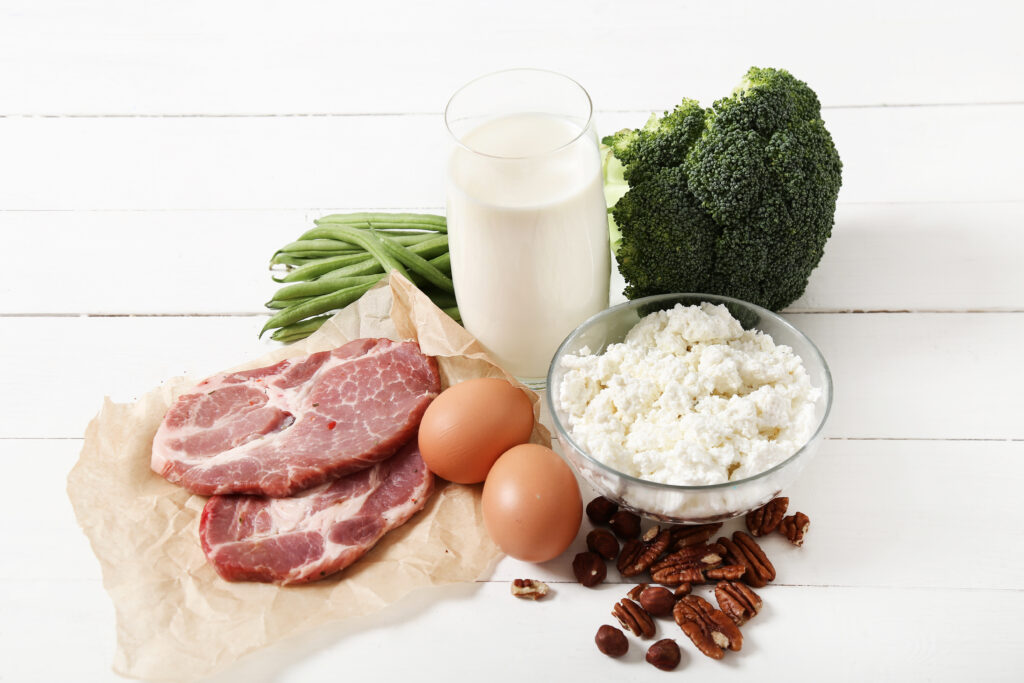Most people who are starting a weight loss journey concentrate mainly on cutting calories and upping their physical activity. Although these elements are important, protein’s contribution to long-term weight loss is frequently overlooked. One essential macronutrient that can have a big impact on your weight loss efforts is protein. We will discuss the importance of protein in weight loss and the reasons it ought to be a keystone of your diet plan in this blog.
Along with fats and carbohydrates, protein is one of the three necessary macronutrients. It is made up of amino acids, which are essential for many body processes and are the building blocks of life. Protein is essential for immune system support, tissue growth and repair, and the synthesis of hormones and enzymes. Protein’s importance in weight loss stems from its impact on hunger, metabolism, and muscle maintenance.
Satiety and Appetite Control
Protein is well recognized for its exceptional capacity to increase feelings of fullness and lower total caloric intake. When you eat foods high in protein, your body releases satiety hormones like cholecystokinin and leptin, which tell your brain that you are full. It is therefore simpler to maintain your calorie deficit because you are less likely to overeat or have strong food cravings.
Studies have repeatedly demonstrated that diets richer in protein result in lower calorie intake, which in turn promotes weight loss. You can avoid the common trap of overindulging in unhealthy, calorie-dense options and stay on track with your dietary goals by including protein in your meals and snacks.
Enhanced Metabolism
The effect that protein has on metabolism is another important advantage when it comes to weight loss. The thermic effect of food (TEF) is higher for protein than for fats and carbohydrates. This indicates that processing and metabolizing protein requires more energy (calories) from the body. As a result, eating a diet high in protein may raise your daily caloric expenditure, which in turn may raise your metabolic rate.

Furthermore, during a calorie deficit, protein helps maintain lean body mass. Muscle tissue may contribute to some of the weight loss you experience, particularly if you do not consume enough protein. Because muscle has a high metabolic activity, it burns calories even when at rest. Making sure you are getting enough protein will help you keep your muscle mass and avoid slowing down your metabolism, which is something that many people worry about when trying to lose weight.
The Protein-Weight Loss Connection
The notion that protein can aid in weight loss and enhance body composition is supported by a large number of studies. For example, compared to a standard protein diet, a high-protein diet resulted in greater fat loss and lean body mass preservation, according to a study published in the American Journal of Clinical Nutrition.
Furthermore, a meta-analysis published in the Journal of the Academy of Nutrition and Dietetics demonstrated that higher protein intake was associated with greater weight loss and improved body composition, specifically a decrease in body fat percentage.
Practical Tips for Incorporating Protein
After demonstrating the significance of protein in your weight loss efforts, let us look at some doable strategies for increasing your intake of protein in your diet:
Include Protein in Every Meal: Whether it is plant-based options like tofu, legumes, and quinoa, or lean meats, poultry, fish, eggs, or dairy products, make sure you have a source of protein with every meal.
Select Lean Protein Sources: To control your calorie intake, choose lean protein sources. Fish, poultry, and low-fat dairy products are all excellent options.
Make Whole Foods Your First Choice: Compared to processed protein supplements, whole food sources of protein are frequently more nutrient-dense and satisfying. Include whole grains, beans, nuts, and seeds in your diet.
Snack Wisely: Snacks high in protein can help manage hunger in between meals. A handful of almonds, cottage cheese, or Greek yogurt are all great choices.
Track Your Intake: To make sure you are hitting your targets, keep track of how much protein you consume each day by keeping a food journal or using a nutrition app.
Protein is an essential component of a successful weight loss program, not just a nutrient for bodybuilders and athletes to worry about. You may take advantage of protein’s advantages to lose weight more successfully and sustainably by learning how it affects metabolism, appetite regulation, and muscle preservation. Thus, keep in mind to prioritize protein in your diet plan and observe as it transforms into a vital ally on your journey to a healthier, more slender you.



